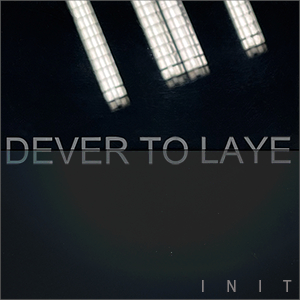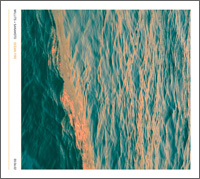
(03.25.08) US nouveau pop-microsound surfer, Christopher Willits, and Japanese pioneer of proto-ambient cinematics, Ryuichi Sakamoto, bring something elemental to bear on Ocean Fire‘s ivory-stretching and string-wringing electronica. In terms of couplings, these two have previous form, but this time it’s (more) (inter-)personal. In the last few years, Sakamoto has shared files with maven of minimal and micro, Alva Noto (Vrioon and Insen), and, more recently, with Fennesz (Cendre), perhaps the most notorious of the laptop-mediated guitar-shredders. The latter would seem to lead ‘naturally’ to relative new kid on the digi-chopping block, Willits, who, in turn, has worked with the likes of Taylor Deupree and fellow axe-morpher, Oren Ambarchi, so… what’s new with these two?
What immediately sets this communion apart from previous Sakamoto collaborations is the renunciation of the piano’s natural sound colours. Here he’s credited with “piano”, but it’s mutated into such radically altered sonic states as to parallel Willits’ similarly encrypted “guitar.” On Ocean Fire, both piano and guitar alike are subject to the all-powerful third instrument, wielded by both – “computer”, by which they are squeezed and stretched out of shape and into scape, taking on a new life of vibrant forms – hyper-timbral streams streaked with unwonted errata. In compositional methodology, half live-improvisation and half post-jam bricolage, W+S’s inspiration is the ocean itself, this recording standing both as protest and paean. Gratifyingly, W+S eschew all trace of any hackneyed nature-sample approach associated with old school ambient cliché, investing instead in a form of sonic aquakinesis through digital simulacra of the sea’s swells and serpentine tricklings and ripplings.
Beginning with the lyrical arcs and shudders of “Toward Water,” easily the prettiest piece (though even here the always questing W+S can’t resist some post-Oval glitch-tronics of stop-start stutter), the set gradually takes the plunge, by way of the transitional “Umi,” down into “Sea Plains,” whose massive vortices of abrasive clangour are alive with a detritus of wracked once-melodies, obscured by clouds of reverberant fuzz. The opening strains of a track such as “Sentience” or the closing “Ocean Sky Remains” have to be the most ominous and downright racket-eering that Sakamoto has put his name to. The latter piece is as malevolently bristling with edge-teetering circuit wrangling and post-digital interstellar overdrive as any Mego-wrought hard drive pile-ups. Despite this it somehow never quite slips the tenuous tethers, however fraying, of mainstream musical moorings in too craven embrace of cacophanism.
Ocean Fire is stuffed with unquiet ambivalent pieces that shift constantly away from the almost serene into the seething. Nautical miles away from the restrained Budd-ism or Fripp-eries of Eno’s 70s/80s collaborations, the tenor is as much dissonant as consonant, the template, for quick-and-dirty reference purposes, roughly two parts Fennesz’s Endless Summer/Venice to one part Tim Hecker’s Radio Amor/Harmony in Ultraviolet. The outcome swims in a multiphonic motion pool that bundles in with the usual pop-ambient crackle-tackle of microsonic orthodoxy a writhing array of sputters and flutters, sparks and flickers, ghost drones and abraded harmonies that’s fresh and febrile enough to keep the most discerning of experimental-ambienteer happily headphonically engulfed. Ultimately, Ocean Fire stands as a triumph of postmodern neo-expressionism, and, what’s more, a bold return to form for 12k.
Ocean Fire is out now on 12k. [Purchase]










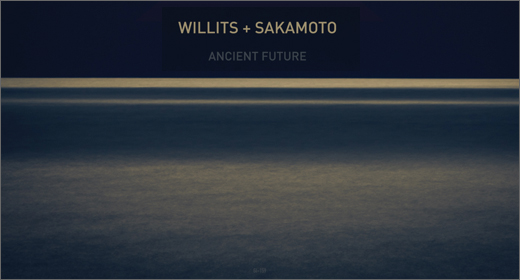
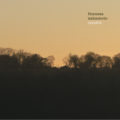
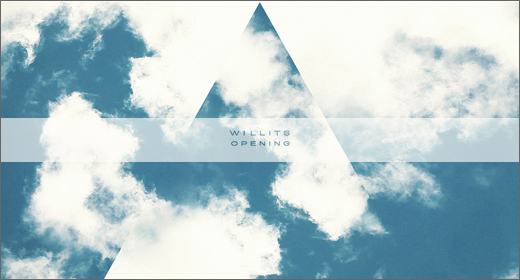
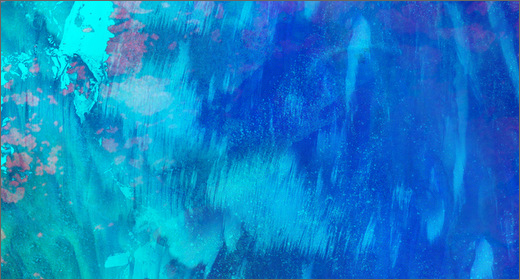




![Hasbeen :: Bunker Symphonies II (Clean Error) — [concise]](https://igloomag.com/wp/wp-content/uploads/2025/04/hasbeen-bunker-symphonies-ii_feat-75x75.jpg)
![Extrawelt :: AE-13 (Adepta Editions) — [concise]](https://igloomag.com/wp/wp-content/uploads/2025/04/extrawelt-ae-13_v_feat-75x75.jpg)
![Beyond the Black Hole :: Protonic Flux EP (Nebleena) — [concise]](https://igloomag.com/wp/wp-content/uploads/2025/04/beyond-the-black-hole-protonic-flux_feat-75x75.jpg)
![H. Ruine, Mikhail Kireev :: Imagined / Awakenings (Mestnost) — [concise]](https://igloomag.com/wp/wp-content/uploads/2025/04/h-ruine-mikhail-kireev-imagined-awakenings_feat2-75x75.jpg)


![Squaric :: 808 [Remixes] (Diffuse Reality) — [concise]](https://igloomag.com/wp/wp-content/uploads/2025/04/squaric-808-remixes_feat-75x75.jpg)
